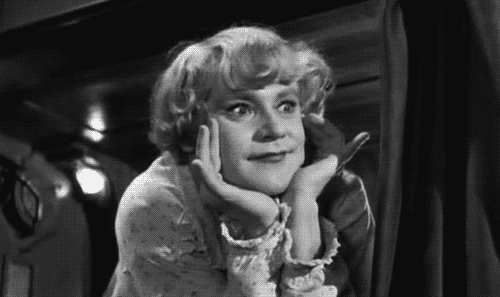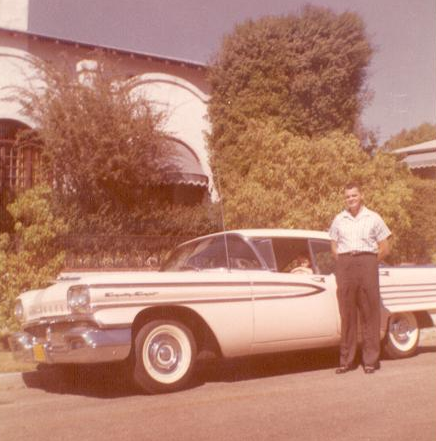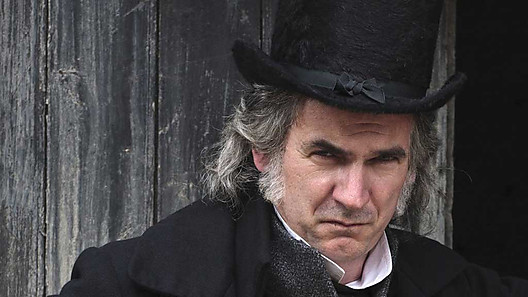Russell McCutcheon was nice enough to pass along this commercial to me, knowing I’d be interested because of my recent post about the ad on which it is based. It offers a response to Cadillac’s unapologetic praise of American consumerism…and it’s brought to you by Ford Motor Co. Yep, Ford! The same company who’s “Built Ford Tough” campaigns are hardly trying to get customers to imagine a more eco-friendly future, instead offering us the likes of Toby Keith (the very same “Angry American” who found a crass way of suggesting the “American way” is pummeling the country’s enemies) out-muscling two other trucks: Continue reading “Gotta Sell Somebody”
Conceiving the “We” in Pluralism

On the surface, pluralism in the college curriculum seems like an obvious social and political good. Why can’t we all just get along? Well, pluralism suggests that we can, in fact, all get along. Perhaps we can get along once we realize that we are, at bottom, similar in essential ways. On the other hand, where fundamental differences within the group might nevertheless persist, we might attenuate social conflict with a deep, empathetic understanding of others. Thus can pluralism cultivate the virtue of tolerance or even acceptance toward others in modern societies with whom we must work and cooperate. What could be wrong with that? Continue reading “Conceiving the “We” in Pluralism”
Making the Familiar Grotesque
 The media here in the U.S. is currently filled with stories marking the 20th anniversary of the massacre of scores of the minority Tutsis in Rwanda, at the hands of dominant Hutus. Begun after the deadly April 6, 1994, attack on President Habyarimana‘s plane — a Hutu himself — 800,000 Tutsis (the number usually reported) were scapegoated in the following weeks, many killed by neighbors or hacked to death with machetes…, an atrocious event by any measure, no doubt. Continue reading “Making the Familiar Grotesque”
The media here in the U.S. is currently filled with stories marking the 20th anniversary of the massacre of scores of the minority Tutsis in Rwanda, at the hands of dominant Hutus. Begun after the deadly April 6, 1994, attack on President Habyarimana‘s plane — a Hutu himself — 800,000 Tutsis (the number usually reported) were scapegoated in the following weeks, many killed by neighbors or hacked to death with machetes…, an atrocious event by any measure, no doubt. Continue reading “Making the Familiar Grotesque”
Not All of Us?
 National Public Radio’s “Code Switch” team has posted some pretty interesting stories, I think, but it nonetheless seems to perpetuate a notion of code switching as a very specific sort of move, the possession of just a select few strategic actors, rather than seeing it basically as synonymous with being any social actor. Continue reading “Not All of Us?”
National Public Radio’s “Code Switch” team has posted some pretty interesting stories, I think, but it nonetheless seems to perpetuate a notion of code switching as a very specific sort of move, the possession of just a select few strategic actors, rather than seeing it basically as synonymous with being any social actor. Continue reading “Not All of Us?”
Gender Switching
 Did you ever see the classic comedy “Some Like it Hot?” (1959), in which Jack Lemmon and Tony Curtis hide from the mob (and both fall in love with Marilyn Monroe), by impersonating members of an all-female band that’s on the road?
Did you ever see the classic comedy “Some Like it Hot?” (1959), in which Jack Lemmon and Tony Curtis hide from the mob (and both fall in love with Marilyn Monroe), by impersonating members of an all-female band that’s on the road?
Question: when does code switching become cross-dressing?
You’ll learn more at Lehigh University when
the Edge comes to town next week.
Up, Up, and Away
 Is every code switch spoken?
Is every code switch spoken?
You’ll learn more at Lehigh University when
the Edge comes to town in a few weeks.
The Magic of the Melancholy
 Jazz fans might know the Canadian singer, Holly Cole, and her (in my opinion, wonderful) 1995 album of (again, for me, the wonderful) Tom Waits songs, “Temptation.” In particular, I have in mind Cole’s version of his 1974 song, “(Looking for) The Heart of Saturday Night.”
Jazz fans might know the Canadian singer, Holly Cole, and her (in my opinion, wonderful) 1995 album of (again, for me, the wonderful) Tom Waits songs, “Temptation.” In particular, I have in mind Cole’s version of his 1974 song, “(Looking for) The Heart of Saturday Night.”
Give a listen to her version:
I find this song to be a great vehicle to discuss how essentialism (and nostalgia) work, for if you listen to the lyrics you’ll quickly see that Waits has selected a series of isolated, almost distilled moments (akin to what’s happening in this deconstruction of advertizing), none more or less indicative of what any particular Saturday night surely feels like (Question: what does Saturday night feel like?), but, together, they begin to paint a picture and, even if you don’t identify with its specific parts, you might yourself longing for this simpler time.
The song opens:
Well you gassed her up
Behind the wheel
With your arm around your sweet one
Your Oldsmobile
Barrelin’ down the boulevard
You’re looking for the heart of Saturday night
Obviously, this is not the heart of the Saturday night that I grew up with in southern Ontario, when we eagerly waited for the theme from “Hockey Night in Canada” to come on TV at 8, to watch the Leafs play.
But I digress; the song continues:
And you got paid on Friday
Your pockets are jinglin’
And then you see the lights
You get all tinglin’
Cause you’re cruisin’ with a 6
You’re looking for the heart of Saturday night
Cruising with a 6-pack of beer in your Olds — a very particular Saturday night is being created. The song goes on:
Then you comb your hair
Shave your face
Tryin’ to wipe out every trace
Of all the other days
In the week
You know that this’ll be the Saturday
You’re reachin’ your peak
With few words we now know much about the fellow. Then, not long after, the singer asks:
Tell me, is it the crack of the pool balls?
Neon buzzin?
Telephone’s ringin’;
It’s your second cousin
Is it the barmaid that’s smilin’ from the corner of her eye?
Magic of the melancholy tear in your eye.
So here we have a song trying to identify something down in the core, the essence, the heart of Saturday night — not the eve of the weekend, for that would be Friday night, and not the very different eve of the work week, for that would be Sunday night. But, instead, the peak of the weekend: Saturday night. It should be clear that the lyric that begins “Tell me, is it the…” could have had innumerable items listed after it, such as “‘Hockey Night in Canada” theme?” or “fact that you have to work the weekend — again,” indicating that there are as many Saturday nights as their are definers of what counts as the definitive Saturday night, which makes a search for its core rather pointless, no? I recall my older sister, a nurse who worked shift-work all her career, and how the holidays — days that just felt like a holiday, right? — for us were never necessarily the holidays for her; hospitals run 7/24/365 and somebody’s always on the job there.
But the trick is in painting a picture just vague enough to allow the listener to connect with it in some unexpected way — such as how this song, for whatever reason, brings back memories for me (there’s the nostalgia…) of young guys cruising their old cars up and down the streets of my small childhood town, hanging out in the parking lot of a grocery store, or maybe the high school, and lifting their cars’ hoods to, well, just stare at the engines for a while. Listening to Rush playing on someone’s car stereo.
Though I never did that, and that’s not exactly what the song is about, that random childhood memory of my own got hooked on something in that lyric years ago, a lyric which was vague enough not to repel what it was that this one listener wanted to do with it.
(Aside: This is also the secret to good campaigning, no? For if you’re trying to build a broad coalition, then your specificity must be moderated by pithy vagueries that listeners can do as they like with — like: Hope, A Stronger America, A Thousand Points of Light, Don’t Stop Thinking About Tomorrow, or Yes We Can….)
And so — at least for me, with memories of listening to this song having already moved away from Toronto, but with it tethered to yet other memories of discovering Holly Cole while living in Toronto (there’s that nostalgia again…), seeing her preform in a small bar downtown, missing not the song’s home but my home… — this song works. It captures a dream of a forgotten Saturday that, if I’m being truthful, I’ve never had nor ever will. It suggests a simpler time, when pocket change mattered, when second cousins lived around the corner and knew where to find you downtown, when driving up and down the streets was a sufficient pastime.
The trick of being a good essentialist, then, is to select what champions your case and to portray it as universal, yes, but also to keep it vague enough for others to buy in for their own reasons.
And if you don’t know it, here’s the original…
Code Switch at Work?
 In chapter 25 of Great Expectations, we read the following quote from Mr. John Wemmick, the clerk for Miss Havisham’s lawyer, Mr. Jaggers. In response to Pip’s question of whether his boss knows about his home life, where he gently cares for his aged father, Wemmick says:
In chapter 25 of Great Expectations, we read the following quote from Mr. John Wemmick, the clerk for Miss Havisham’s lawyer, Mr. Jaggers. In response to Pip’s question of whether his boss knows about his home life, where he gently cares for his aged father, Wemmick says:
No; the office is one thing, and private life is another. When I go into the office, I leave the Castle behind me, and when I come into the Castle, I leave the office behind me. If it’s not in any way disagreeable to you, you’ll oblige me by doing the same. I don’t wish it professionally spoken about. Continue reading “Code Switch at Work?”
The Normalcy of “Emotional Pornography”
 More than two decades after its release, I doubt that there are few in the movie-watching public who haven’t heard of Schindler’s List (1993), that now-famous film directed by Steven Spielberg that confronted audiences with what was marketed as the Holocaust in cinematic form. In the film, Oskar Schindler is a Nazi businessman whose already tenuous allegiance to the Third Reich weakens as his compassion and humanization of the Jews around him grows. The plot line revolves around the story of Schindler’s efforts to save as many Jews from death as possible, a feat accomplished when Schindler compiles a list of Jews whose survival (as his employees) he links to the health of his business. Continue reading “The Normalcy of “Emotional Pornography””
More than two decades after its release, I doubt that there are few in the movie-watching public who haven’t heard of Schindler’s List (1993), that now-famous film directed by Steven Spielberg that confronted audiences with what was marketed as the Holocaust in cinematic form. In the film, Oskar Schindler is a Nazi businessman whose already tenuous allegiance to the Third Reich weakens as his compassion and humanization of the Jews around him grows. The plot line revolves around the story of Schindler’s efforts to save as many Jews from death as possible, a feat accomplished when Schindler compiles a list of Jews whose survival (as his employees) he links to the health of his business. Continue reading “The Normalcy of “Emotional Pornography””
“Save it For Your Friends…”
 What’s the link between code switching
What’s the link between code switching
and issues of class, power, and place…?
You’ll learn more at Lehigh University when
the Edge comes to town in a few weeks.
